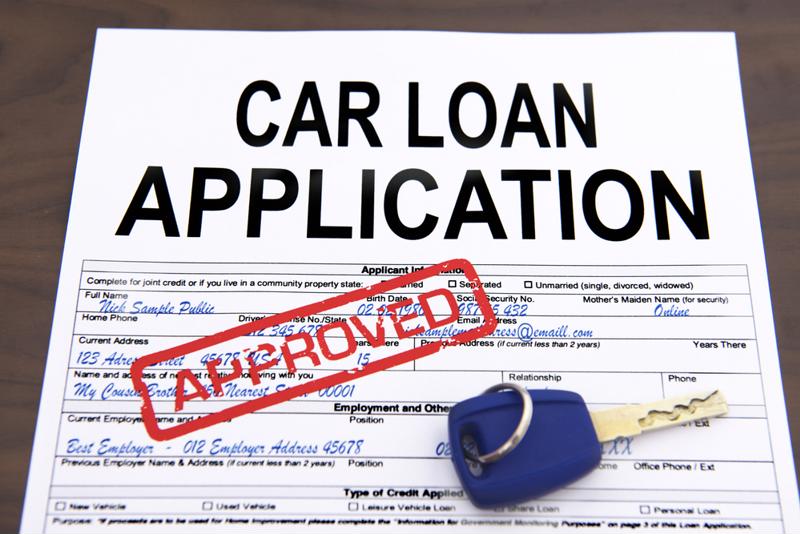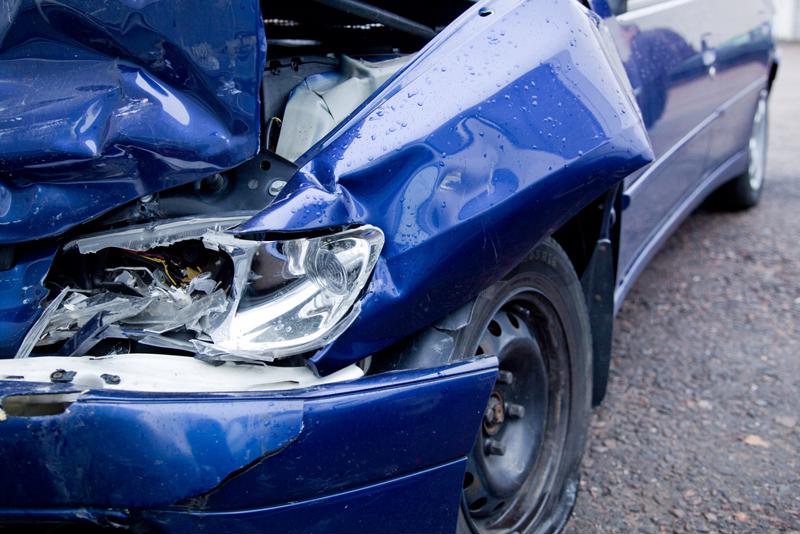Buying a car isn't like purchasing a new pair of pants. It's a significantly larger investment that will hopefully stay with you for years, so you want to make the best choice before driving away in your fresh set of wheels.
Another difference between cars and pants? Cars are exponentially more complicated. While you only need to think about size, price and durability when considering which new pair of trousers to bring home, there are many other factors that can influence your choice of car. Knowing what to look for – and what to look out for – can be the difference between the car of your dreams and a lemon. Every car and, by extension, shopping experience, will be different, but here are four factors that tend to be more important when choosing a vehicle.
 If you want to minimize your car payments, you'll need either a sizable down payment or a decent credit history.
If you want to minimize your car payments, you'll need either a sizable down payment or a decent credit history.1. Cost
This is the big one. In fact, chances are price is the most important factor you're considering when you shop around for a vehicle. But you should understand what exactly cost means within the context of buying a car.
Sticker price is a big part of a car's cost, but what's more significant is the financing. Of course it stands to reason that a higher sticker price means that you'll likely need to either make a larger down payment or borrow more money from the bank, both of which can have their own challenges. Credit.com noted that it's generally better to make as large a down payment as possible, as this will not only reduce the amount of money you'll need to borrow to cover the difference, but will also help keep your interest rate lower.
If you can't afford the up-front cost of a larger down payment, you'll need a decent credit score to procure a loan at a reasonable interest rate. If your credit leaves something to be desired, or if you have no credit history at all, you still aren't sunk. It's possible to procure a loan from a dealer with no credit, but that likely means you'll need to provide more up front. If all else fails, you can consider having a relative with good credit cosign your loan documents as a guarantor.
"Fuel costs are an inevitable part of car ownership."
2. Fuel economy
Once you've sorted out your down payment and your loan, you better hope you've got some money leftover – you'll need it for gas. Fuel costs are an inevitable part of car ownership, but if you're smart when you're shopping you can reduce them.
Fortunately, fuel economy has achieved buzzword status in the automotive industry, and a growing number of fuel-efficient cars are hitting the market every year. Many newer models boast better gas mileage, but if you're shopping for a used car you still need to pay attention. There are resources available online to make this decision easier. Fueleconomy.gov is a government-sponsored site that not only offers useful information on hybrid cars and fuel efficiency in general, but also allows users to compare cars side-by-side to see which offers more bang for your gas station buck.
3. Cost of ownership
Wait a minute – we already talked about cost earlier, right? Not quite. A car's cost of ownership, also referred to as its total cost to own, focuses not on how much a car costs to buy, but rather how much money you can expect to spend while you own it.
This isn't quite an exact science, as cost of ownership comprises many factors. It can take into account things like insurance premiums, fuel efficiency and repair estimates based on the reliability of your given make and model. The good news is there are sites that have demystified the process with online cost of ownership calculators, which you should definitely experiment with before making your decision.
 If the car you're looking at has been in an accident in the past, you'll want to know.
If the car you're looking at has been in an accident in the past, you'll want to know.4. Repair history
When shopping for a used car, it's good to keep in mind that you aren't the first person to own it. Additionally, you don't know anything about the previous owner's driving habits, accident history or any number of other factors that can have significant effects on how well your car runs. You should always ask to see the Carfax report when considering a used car, as it will list any major repairs the car has received. However, this is a useful tool, but it's not foolproof – only repairs that get officially logged by a mechanic or dealer make it into the report, so there's no guarantee that you're seeing the whole picture. That said, it's a good place to start.
While there's really no way to circumvent this problem completely, there are steps you can take to minimize risk as much as possible. One of the best ways to squeeze out some extra peace of mind is by limiting your search to manufacturer-certified pre-owned vehicles. These are cars that have been been backed by the manufacturer for quality, which means they have received an extensive inspection before being placed on the lot. Many certified pre-owned cars also come with extended manufacturer's warranty.
Of course, even certified cars can have mechanical issues, so you'll still want to have your car inspected by a third party before purchasing it. Remember: Just because a car looks good on the outside doesn't mean it's in top condition. Only a multi-point inspection can reveal that information.
When you're ready to begin shopping for a high-quality used car, head to New Jersey State Auto Auction. Your dream car is likely waiting for you among the hundreds of Carfax-certified cars on the lot.



